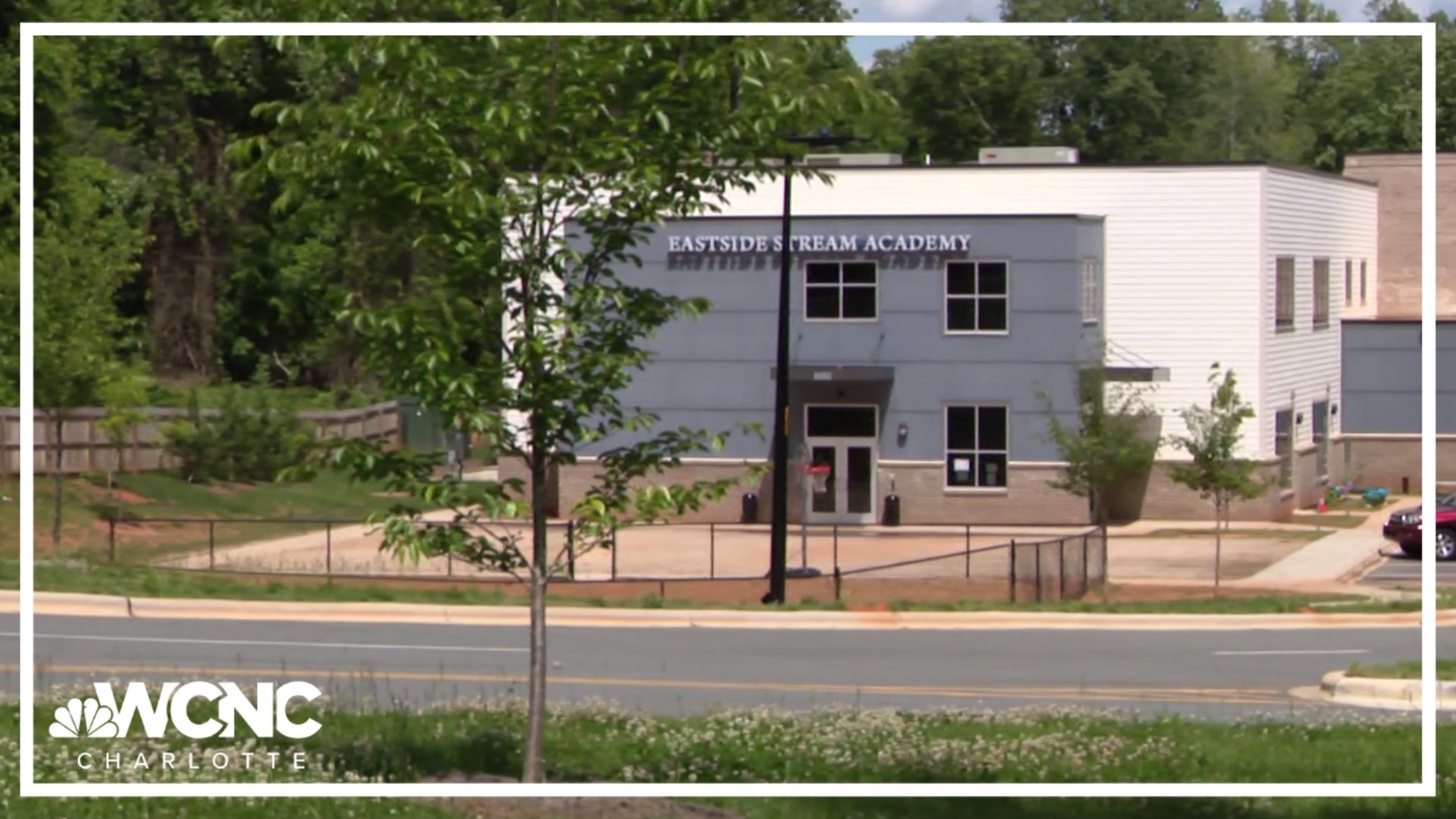MECKLENBURG COUNTY, N.C. — The North Carolina State Board of Education is in a power struggle with the Charter School Review Board over school applications.
In North Carolina, the State Board of Education had previously been responsible for approving or denying charter school applications. However, a new law that was passed in 2023 stripped the state board of this authority and gave it to the Charter School Review Board.
Previously known as the Charter Schools Advisory Board, which held no voting power, the group could only recommend a charter to be approved or denied. HB 618 transformed the advisory board into the Charter School Review Board, which would be able to make final decisions on applications and renewals.
"We know that there's over 77,000 students on the waitlist to get into charter schools," Lindalyn Kakadelis, executive director of the North Carolina Coalition for Charter Schools, said. "And why the demand? I'm not really sure, except that I know that parents like options."
The change in authority over charter school applications has been met with controversy. Some people believe that the new law is an attempt by Republicans to take control of the charter school system. Others believe that the change is necessary to streamline the application process and make it easier for charter schools to open.
"It wasn't to totally take the state board out of the situation because even the state superintendent can call up any decision made by the charter review board and pull it back up to the state board of education level," Kakadelis said.
The review board has 11 members, at least eight of whom would come from the Republican-controlled General Assembly. The North Carolina State Board of Education, which previously approved and denied applications, is majority Democrat-appointed.
After the law went into effect the NCSBE passed a policy stating charter schools' funding would hinge on its board's financial review. Charter schools would have to show compliance with finance laws of state and federal money in order to receive funding under a new policy approved last Thursday.
"For the first time they've decoupled approval from funding," Kakadelis said. "And that's the first time that has happened. Whether that's legal or not, I don't know."
The board already has the statutory responsibility to disburse funds to the schools.
When the state board of education oversaw application when they said yes to a school — funding was not a separate conversation.
With the new review board in play, some say it’s necessary.
"I think that's completely appropriate because I think there should be that level of oversight when we're talking about millions of dollars of taxpayer money," Jennifer De La Jara, a Hunt Institute State Education Policy Fellow and CMS Board Member, said.
De La Jara said she believes the new policy isn't about politics at play, it’s accountability.
"I know for us locally in Charlotte Mecklenburg Schools, we have to with a fine tooth comb and go over any federal dollars that we're receiving," De La Jara said.
No one knows yet if a charter school will be approved by the review board and funding withheld by the state board.
The board members appointed by Democrats support the policy, while the board members appointed by Republicans and the Republican-elected members argue that it is vague and could give the board too much authority over charter school funding.
Despite these clear political lines on the new policy, Kakadelis said the new law itself received bipartisan support.
"Education should never be an 'R and D' sport," Kakadelis said. "K-12 education should be for the child, not political parties."
The law does give appeal power to the NCSBE if a charter applicant disagrees with the review board's decision.
The law retains the State Board of Education's final authority to approve or deny charter school applications without the right of appeal except if the appeal alleges and proves that NCDPI in its review of the charter appeal violated State or Federal laws in its application decision.
This played out recently when a Charlotte-area charter school also attempted and failed its bid to appeal its non-renewal of a charter this year. The North Carolina State Board of Education voted in May to officially revoke the charter of Eastside STREAM Academy in east Charlotte. The state cited failing grades, staff turnover, and fiscal mismanagement as reasons not to renew the school's ability to operate and receive state funding.
When it held the power to approve and deny applications NCSBE did not deny many applicants, but the ones it did came with controversy.
The state board had also denied charter school applications despite recommendations from the Charter School Advisory Board to approve them.
This most recently happened to a proposed charter school in Union County set to be named American Leadership Academy-Monroe. ALA Monroe applied to become a charter school on an accelerated timeline to open in the 2023 school year.
Two North Carolina state senators filed legislation to try and force the North Carolina State Board of Education to change a decision it's made about the charter school. Senate Bill 230 would have reversed the board’s decision to deny the 2022 Acceleration Charter School Application for ALA-Monroe.
These decisions will now be made by the new school review board unless an appeal is made to the state board.
Contact Shamarria Morrison at smorrison@wcnc.com and follow her on Facebook, X and Instagram.

